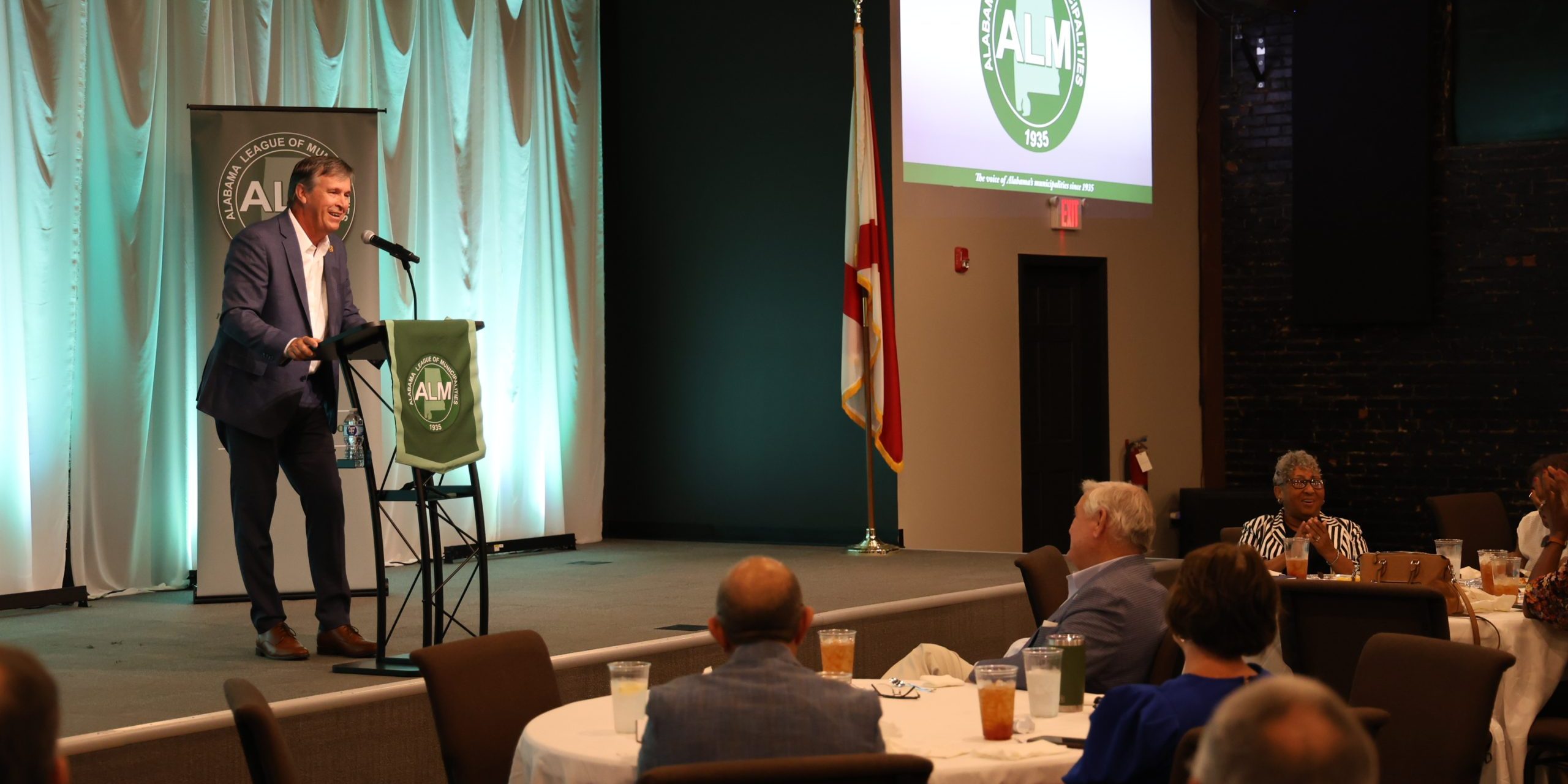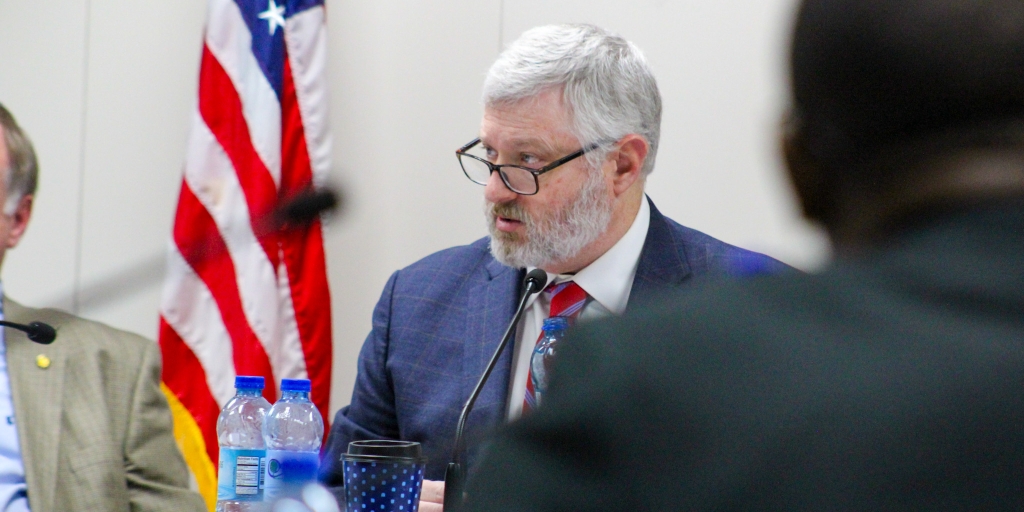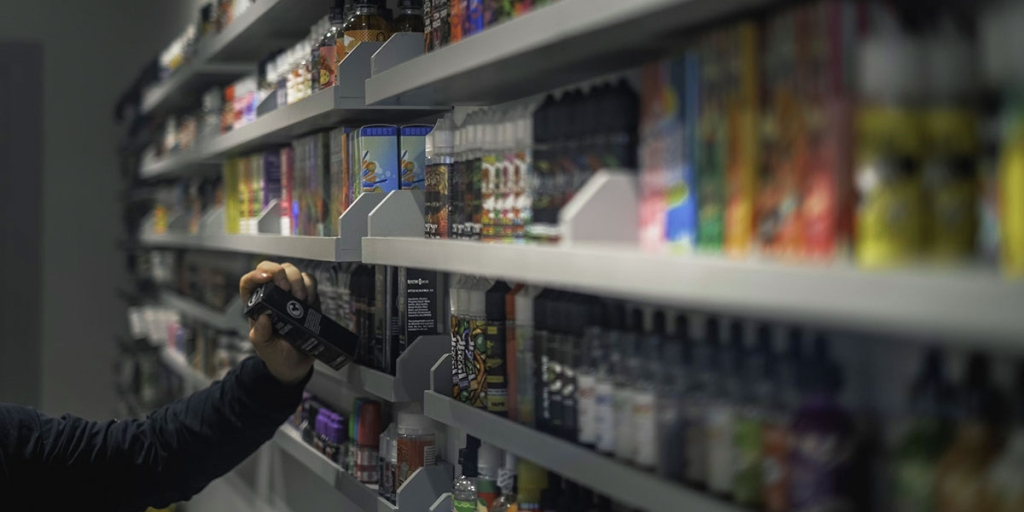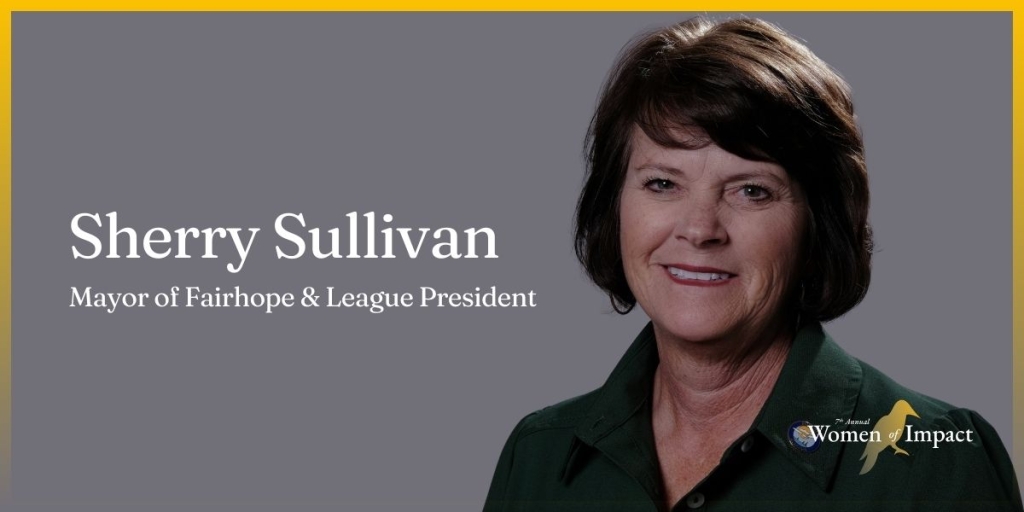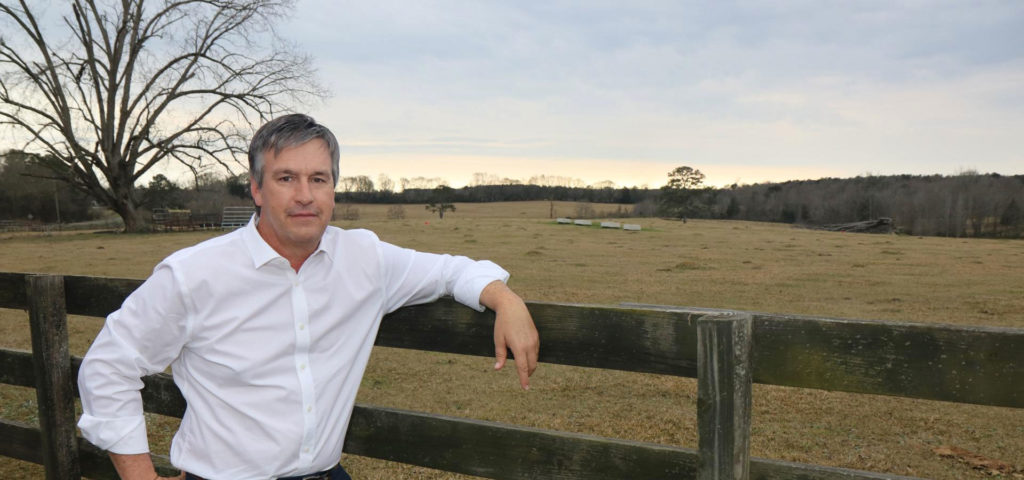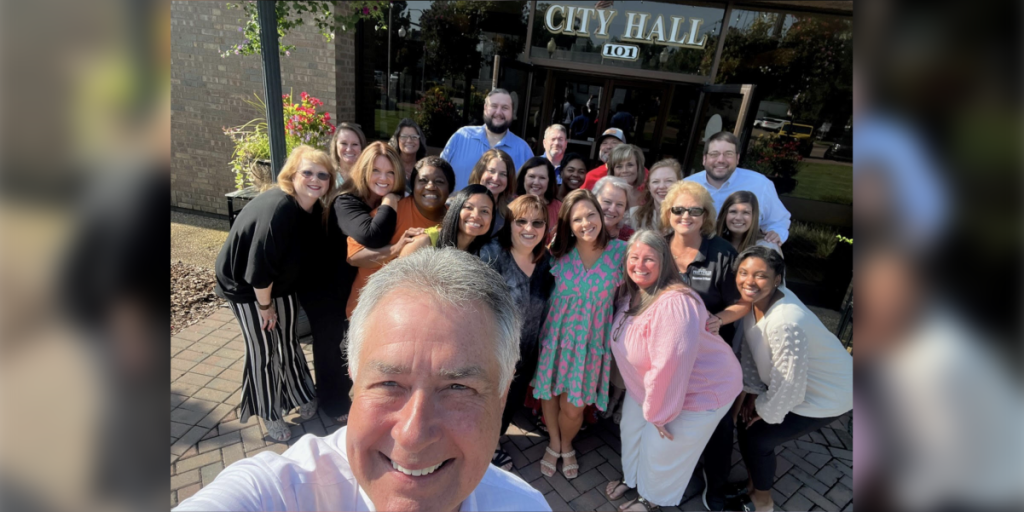Rep. Barry Moore visited with constituents and local leaders earlier this week at an Alabama League of Municipalities luncheon. Rep. Moore (R-Enterprise), who currently represents Alabama’s 2nd Congressional District, and is soon to represent the state’s 1st District, understands the value of agriculture and the need for a new comprehensive Farm Bill.
“Agriculture is a huge, huge issue for the second district,” said Moore. “Now, the Farm Bill comes up every five years. I knew I needed to be a part of that process to make sure that we had a good Farm Bill.”
Currently, Congress is working on drafting the next Farm Bill, which will set agriculture and food policy for the next half-decade. However, Moore cautioned that while progress has been made, a final version of the bill is unlikely to be passed before the end of the year. Congress will be in session through September, but time is running short.
“We’re not going to get this thing done by the end of the year. We’ve only got three more weeks. We’ll be in D.C. through September. So we’ve made some, I think, some good progress on the Farm Bill.”
A central part of Moore’s focus is on ensuring that the Farm Bill prioritizes producers—those who grow the food that feeds the nation, he added. Politically speaking, he shared optimism that if Republicans were to regain control of the Senate, a more producer-centric version of the bill could emerge.
“I think it’ll be a better Farm Bill if we get the Senate Republicans to actually have control when we actually pass a Farm Bill because it needs to be about the production of agriculture. The thing that’s been told to me about the Farm Bill is, y’all, 82% of the entire production of the Farm Bill is for SNAP.”
RELATED: ‘Top priority’: Moore advocates for Alabama’s producers in agriculture hearing
Moore said that he realizes programs like SNAP are necessary although it does give him cause for concern.
“I understand you need those things, but if you don’t provide the producers the resources they need, then there are supply and demand curves and it’s the law. When we have a bigger demand for SNAP than we have for producers and grocery stores, then inflation is the thing that we see. You’re starting to see that corporate code and the money printed.”
“Obviously, it’s going to be harder and harder to keep producers in business.”
Moore’s remarks to the Alabama League of Municipalities was part of a Congressional luncheon series hosted annually by the group. Dothan Mayor Mark Saliba, who also serves as President of the ALM, spoke to the importance of collaboration at multiple levels of government.
“For me, the Alabama League of Municipalities is the voice for towns and cities, 465 strong, we are the boots on the ground, and we know what the issues are,” Saliba said. “Mayors and elected officials that work in municipal government, we hear all the problems, we know what our citizens and what our people need and what they want. ALM advocates for them and provides the resources and tools necessary for us to do our job.”
Austen Shipley is a staff writer for Yellowhammer News. You can follow him on X @ShipleyAusten




